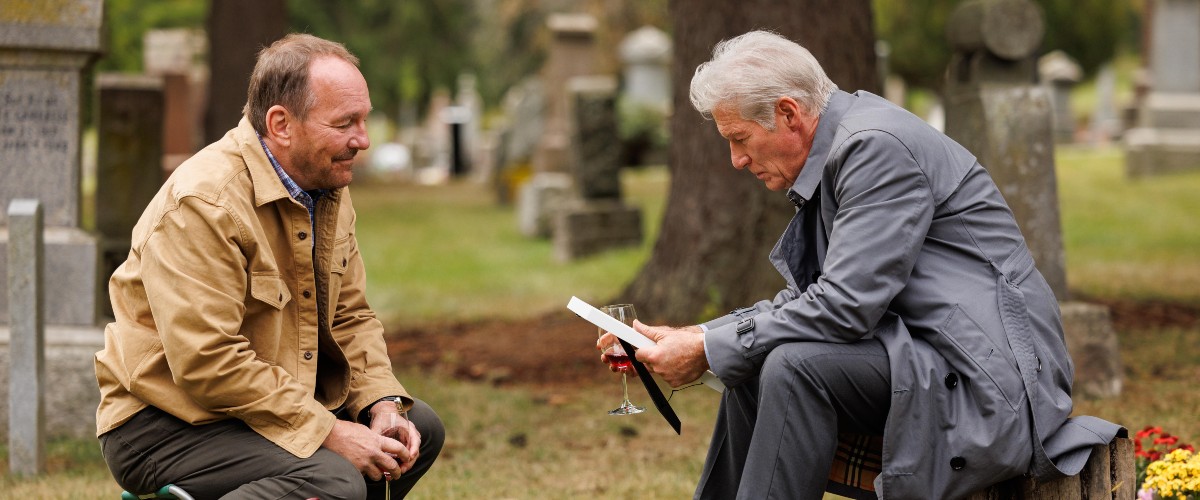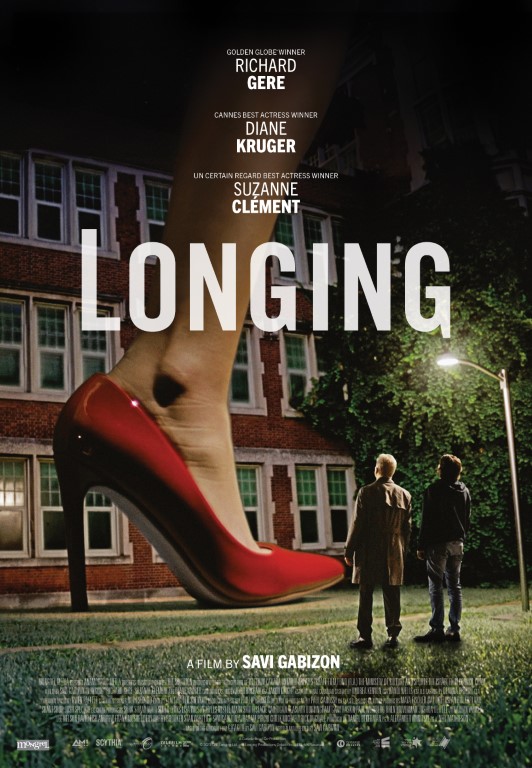“Longing” is a remake of an award-winning Israeli film by the same writer/director, Savi Gabizon. It could just as well be called “Grief,” or perhaps the Portuguese term “Saudade,” sometimes described as the feeling of loss for something you never had and never will. Richard Gere plays Daniel Bloch, a never-married, very successful businessman who rides in a limo, schedules his time tightly, and gives crisp directions to his administrative assistant. Anyone who starts out in so much control at the beginning of a film is destined to lose it very quickly and spend the rest of the movie scrambling to try to feel on top of things again.
Twenty years ago, Daniel broke up with Rachel (Suzanne Clément) for reasons we will learn later in the story. She has asked to meet with him, and though he told her he could only spend 45 minutes with her, he comes prepared to share memories and perhaps apologize if she is looking for closure. But she is there for another purpose.
After they broke up, she returned to her home in Canada. She discovered she was pregnant but never told Daniel because he said he never wanted to be a father. She gave birth to a boy she named Allen. Daniel is overwhelmed with this news, but before he can ask questions or imagine all the possibilities, Rachel tells him that Allen was killed in a car accident.
Daniel wants to learn something about the boy he never knew. He flies to Canada for what he thinks will be just a couple of days. But he postpones his departure as he goes beyond comforting platitudes to learn more about the complicated life of his biological son. He’s also increasingly desperate to somehow find a way to make a meaningful connection with Allen, or at least some contribution to his memory.
Gere is excellent, both in listening to the people who knew Allen and reacting to the sometimes disturbing information he hears. We can feel his sense of loss, especially when we learn why he was so insistent that he could never be a father. Daniel has to go from the ideal Allen he imagines to coming to terms with some harsh and disturbing realities. He begins by using the business judgment that has been his mode of operation for decades. The first person Daniel meets in Canada is Mikey (Wayne Burns), a classmate who introduces himself as Allen’s best friend. The conversation quickly shifts from Allen’s talent for music (Daniel asks, “What about regular stuff like sports?”) to Mikey’s request for $5,000 to pay a drug dealer. It’s clear that the situation, the result of poor judgment, is urgent, but the best Daniel will do is unpersuasively promise to think about it, a response he has clearly made many times in his job.
Everyone who knew Allen begins with comforting platitudes, but when Daniel asks for more specifics, he finds it difficult to process what he learns. At first, he’s defensive, insisting that very vulgar graffiti about a teacher (Diane Kruger) is a love poem. And then, he is faced with an even more crushing loss. Tellingly, his most significant conversations, the best scenes in the film, are with three other fathers, two also devastated by grief. It is only in those moments that Daniel begins to move from a desperate need to find some way for him to make a contribution to Allen, even after his death, to a quieter, more meaningful empathy. It also exposes him to fathers who are loving, patient, and devoted. He learns from them and somehow experiences indirectly being fathered himself. Only then can he share the fear that made him determined not to be a father.
It may appear at first to be too much of a coincidence that everyone Daniel happens to meet has the right message at the right moment to move him forward. That is partly a reflection of his increasing openness to others as the businessman’s mind, which has been his only mode, recedes to allow emotions to surface.
More importantly, it would be a mistake to take this movie too literally. We see Allen’s obscene and degrading poem come to life in Daniel’s dream and hear stories about Allen’s choices that, at best, show a reckless disregard for others and, at worst, a shocking lack of basic respect and integrity. Daniel’s ultimate act of closure will seem surprising, even bizarre, to many audience members.
Gabizon is not making a documentary here or attempting any realism. “Longing” is a manifestation of how grief makes emotions overtake reason and the inherent resilience that sometimes requires you to come back to reality. That reality will be diminished but somehow make you whole.




















